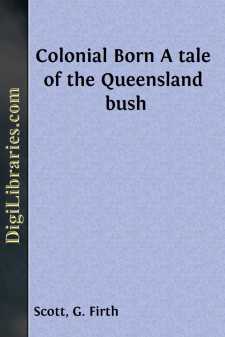Categories
- Antiques & Collectibles 13
- Architecture 36
- Art 48
- Bibles 22
- Biography & Autobiography 813
- Body, Mind & Spirit 142
- Business & Economics 28
- Children's Books 17
- Children's Fiction 14
- Computers 4
- Cooking 94
- Crafts & Hobbies 4
- Drama 346
- Education 46
- Family & Relationships 57
- Fiction 11829
- Games 19
- Gardening 17
- Health & Fitness 34
- History 1377
- House & Home 1
- Humor 147
- Juvenile Fiction 1873
- Juvenile Nonfiction 202
- Language Arts & Disciplines 88
- Law 16
- Literary Collections 686
- Literary Criticism 179
- Mathematics 13
- Medical 41
- Music 40
- Nature 179
- Non-Classifiable 1768
- Performing Arts 7
- Periodicals 1453
- Philosophy 64
- Photography 2
- Poetry 896
- Political Science 203
- Psychology 42
- Reference 154
- Religion 513
- Science 126
- Self-Help 84
- Social Science 81
- Sports & Recreation 34
- Study Aids 3
- Technology & Engineering 59
- Transportation 23
- Travel 463
- True Crime 29
Our website is made possible by displaying online advertisements to our visitors.
Please consider supporting us by disabling your ad blocker.
Colonial Born A tale of the Queensland bush
by: G. Firth Scott
Description:
Excerpt
CHAPTER I.
Where the road to the west from Birralong dips down to the valley of Boulder Creek, a selection stretches out on the left-hand side, well cleared and fenced, and with the selector's homestead standing back a couple of hundred yards from the main road. Slip-rails in the fence, serving as a gateway, open on to the half-worn track which runs from the roadway to the house; and on either side of it there are cultivation paddocks, the one verdant with lucerne, and the other picturesque with the grey sheen of iron-bark pumpkins showing from among the broad leaves of the still growing vines.
The house, unpretentious and substantial, has long since taken to itself the nondescript hue to which the Australian sun soon reduces the unpainted surface of hard-wood slabs and shingles. A square, heavy chimney, smoke-stained and clumsy at the base, rises above the sloping roof at one end, and a roughly fashioned verandah runs along the front of the house, the opposite end to where the chimney is situated being occupied by an odd collection of water-tanks. By the side of the door, and under shelter of the verandah, a saddle is standing on end, while a bridle hangs from a peg in the wall overhead. A heap of two-foot logs is near the water-tanks, with a short-handled axe stuck in an upturned stump which does duty for a chopping-block.
Behind the house a few gum trees in the paddocks lead the eye to where the untouched bush grows thick and sombre in the strength of crowded timber, the bleached trunks of the dead ring-barked trees, where the sunlight plays upon them, gleaming white against the dark purple-blue of the distant foliage. Towards the valley of the creek the land slopes away, and over the course of the stream a faint, blue, vapoury haze hangs in the hot air, beyond which the high table-land on the other side rises like a ridge, the deep tones of its shadows so strongly impressed against the clear transparency of the sky that it seems to be wonderfully near, until the stretch of vapoury haze below corrects the trick of vision. The roadway, as it passes the boundary fence of the selection, gleams yellow under the strong glare of the sun, until, winding behind the clustering trees and bushes, it disappears.
It is a scene fair to look upon, either to one in search of change and contrast, or to one whose perceptions are softened by the glamour and charm of Australian association; but especially to the man whose energy and toil made the bush yield at that one point to the needs of civilization. He, stolid, hard-working bushman, with no ambition for anything beyond what he termed "bush graft and square meals," leaned over his slip-rails and looked up and down the road, wondering what else a man wants for contentment beyond work, food, and sleep.
For years he had been a lonely man, living by himself in solitary bachelor simplicity, but withal contentedly, peacefully, happily. Fifteen miles down the creek there was a cattle station, but none of the station hands ever came round by the selection; and Taylor was never disposed, for the sake of a brief yarn, to ride the score of miles he would have to cover to get to the men's huts....



